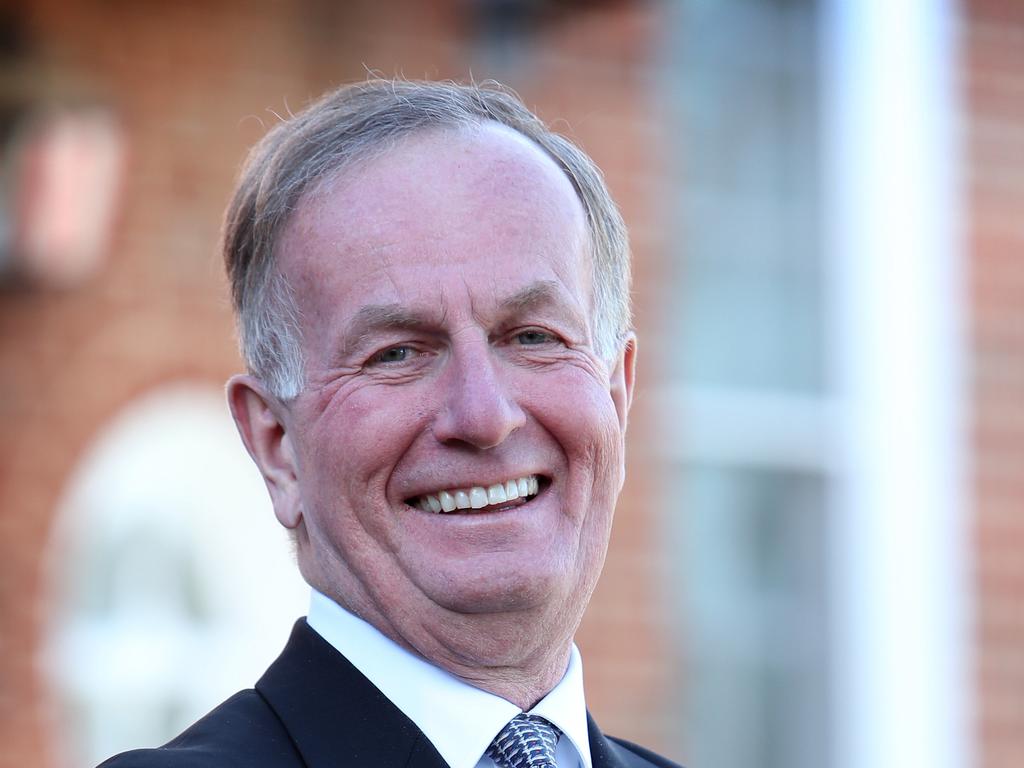Caroline Kennedy proves Joe Biden values alliance
US political royalty Caroline Kennedy has pledged to strengthen the US-Australia alliance as President Joe Biden’s representative in Canberra.

US political royalty Caroline Kennedy has pledged to strengthen the US-Australia alliance as President Joe Biden’s representative in Canberra, as the daughter of slain president John F. Kennedy said the two nations’ ties were vital to America’s future security.
Former Australian ambassadors and Washington foreign policy experts feted Ms Kennedy’s nomination as a sign of Mr Biden’s esteem for Australia, owing to Ms Kennedy’s close connection with the President and her powerbroker role in the Democratic Party.
The daughter of the late US president and Jacqueline Kennedy Onassis will be the first woman to serve as the US envoy to Australia if she is confirmed by the Senate early next year.

Georgetown professor Evan Medeiros, a China expert and friend of Ms Kennedy, saw the appointment as “the opening of a new era in the alliance with Australia in a way that transcends even geopolitics”.
Ms Kennedy, 64, has a distinguished history of diplomatic experience, having served as US ambassador to Japan under Barack Obama for four years to 2017.
She has also written 11 New York Times best-selling books on law, civics, and poetry.
In a statement on Thursday, Ms Kennedy said she was “excited to get to know the Australian people, learn about their fascinating country and share with them what I love most about America”.
She called Australia “a country that is vital to our future security and prosperity”.
The announcement ended months of speculation as to whether she wanted the role, given frequent press reports from May to July that she was about to be nominated. After almost 11 months in office, the Biden administration has been able to secure only a handful of top diplomatic posts.
“I look forward to collaborating with the government of Australia to strengthen our alliance, improve global health and increase vaccine access during this terrible pandemic and to address the urgent climate crisis,” she added.
Her nomination comes two months after Mr Biden and Scott Morrison signed a major trilateral military alliance with Britain.

Former Australian ambassador to Washington Kim Beazley said Ms Kennedy would be “enormously effective” in Canberra.
“She is a good diplomat and has had a great history in the political life of the US. She is a woman who gets noticed and we want that in an American ambassador to Australia,” he told The Australian.
Michael Thawley, who preceded Mr Beazley in Washington, said Ms Kennedy was “politically astute” and her appointment reflected the “esteem and affection which Australia enjoys in the US”.
“As the daughter of one of the US’s most-loved presidents and a member of one of the US’s most significant political dynasties, she is something of a symbol of the consequential place Australia occupies in the US’s world view.”
Ms Kennedy, if approved as expected by the Senate, will succeed Donald Trump’s ambassador to Australia Arthur Culvahouse, a US lawyer, who returned to the US in January this year after 22 months as ambassador.
“She is close to the White House and can reach back at will. She is an experienced ambassador who knows the ins and outs of managing a major alliance. And she easily connects with people, especially given her family heritage,” Professor Medeiros told The Australian.
Ms Kennedy was a prominent supporter of Barack Obama in 2008, and an early backer of Joe Biden’s presidential bid last year.
She wrote in the Boston Globe in January last year that Mr Biden “radiated American optimism and generosity of spirit”, when the then ex-vice president’s campaign was struggling.
“Prior to her time in Japan, Kennedy was at the forefront of education reform efforts in New York City, creating public-private partnerships to promote arts education, school libraries and performing arts spaces,” the White House said in the announcement.
Mike Green, an expert in Asia and the Pacific at the Centre for Strategic and International Studies, said Ms Kennedy’s experience in Japan was a significant advantage … “especially given the growing trilateral security co-operation with Japan and the Quad”.
Ms Kennedy was five when her father was assassinated in Dallas in November 1963.








To join the conversation, please log in. Don't have an account? Register
Join the conversation, you are commenting as Logout